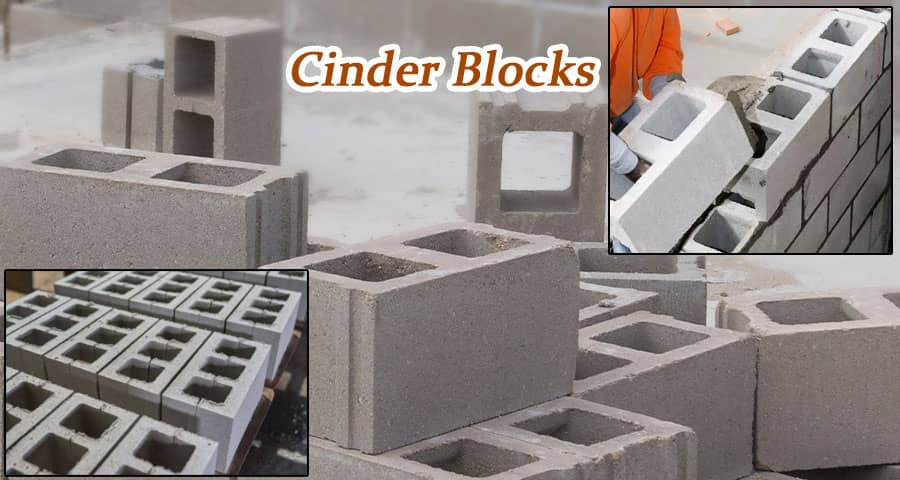Unveiling the Versatility of Cinder Blocks in Construction
Tweet
Cinder blocks, also known as concrete masonry units (CMUs), have long been a cornerstone in the construction industry, offering unparalleled versatility, durability, and cost-effectiveness.
Understanding Cinder Blocks
Cinder blocks are rectangular blocks made from concrete and aggregates, incorporating various materials such as fly ash, gravel, and sand. These blocks come in a range of sizes and shapes, catering to diverse construction needs. Their composition renders them sturdy and resilient, capable of withstanding substantial loads and adverse weather conditions.
Structural Integrity and Stability
One of the primary reasons for the widespread utilization of cinder blocks is their exceptional structural integrity. These blocks offer robust support and stability, making them ideal for constructing foundations, walls, and other load-bearing structures. Their uniform shape and density ensure consistent performance, enhancing the overall safety and longevity of the edifice.
Versatility in Design and Construction
Cinder blocks empower architects and builders with unparalleled flexibility in design and construction. Their modular nature facilitates swift assembly and customization, enabling the realization of intricate architectural visions. Whether used for residential, commercial, or industrial projects, cinder blocks adapt seamlessly to diverse requirements, from simple partitions to elaborate facades.
Sustainable and Eco-Friendly Solution
In an era marked by growing environmental awareness, cinder blocks emerge as a sustainable choice for conscientious builders. These blocks often incorporate recycled materials, reducing the carbon footprint associated with construction. Furthermore, their durability minimizes the need for frequent replacements, contributing to long-term sustainability and resource conservation.
Fire Resistance and Thermal Insulation
The inherent properties of concrete make cinder blocks inherently fire-resistant, offering invaluable protection against conflagrations. Additionally, their density provides effective thermal insulation, regulating indoor temperatures and reducing energy consumption. This dual benefit enhances occupant comfort and safety while mitigating operational costs for heating and cooling.
Cost-Effectiveness and Affordability
Amidst the myriad considerations in construction projects, cost-effectiveness remains paramount. Cinder blocks present a compelling value proposition, combining durability and performance with affordability. Their mass production and widespread availability further contribute to cost savings, making them an attractive option for both budget-conscious homeowners and large-scale developers.
Applications Across Industries
The versatility of cinder blocks transcends conventional construction, finding applications across various industries and sectors. From retaining walls and landscaping features to sound barriers and industrial storage solutions, these blocks offer a multifaceted solution to diverse challenges. Their adaptability and resilience make them indispensable across residential, commercial, and industrial domains.
Conclusion
In conclusion, cinder blocks epitomize the epitome of versatility, durability, and cost-effectiveness in modern construction. From their structural integrity and design flexibility to their sustainable attributes and wide-ranging applications, these blocks continue to redefine the boundaries of architectural innovation. As the cornerstone of countless edifices worldwide, cinder blocks underscore their enduring relevance in shaping the built environment of tomorrow.
